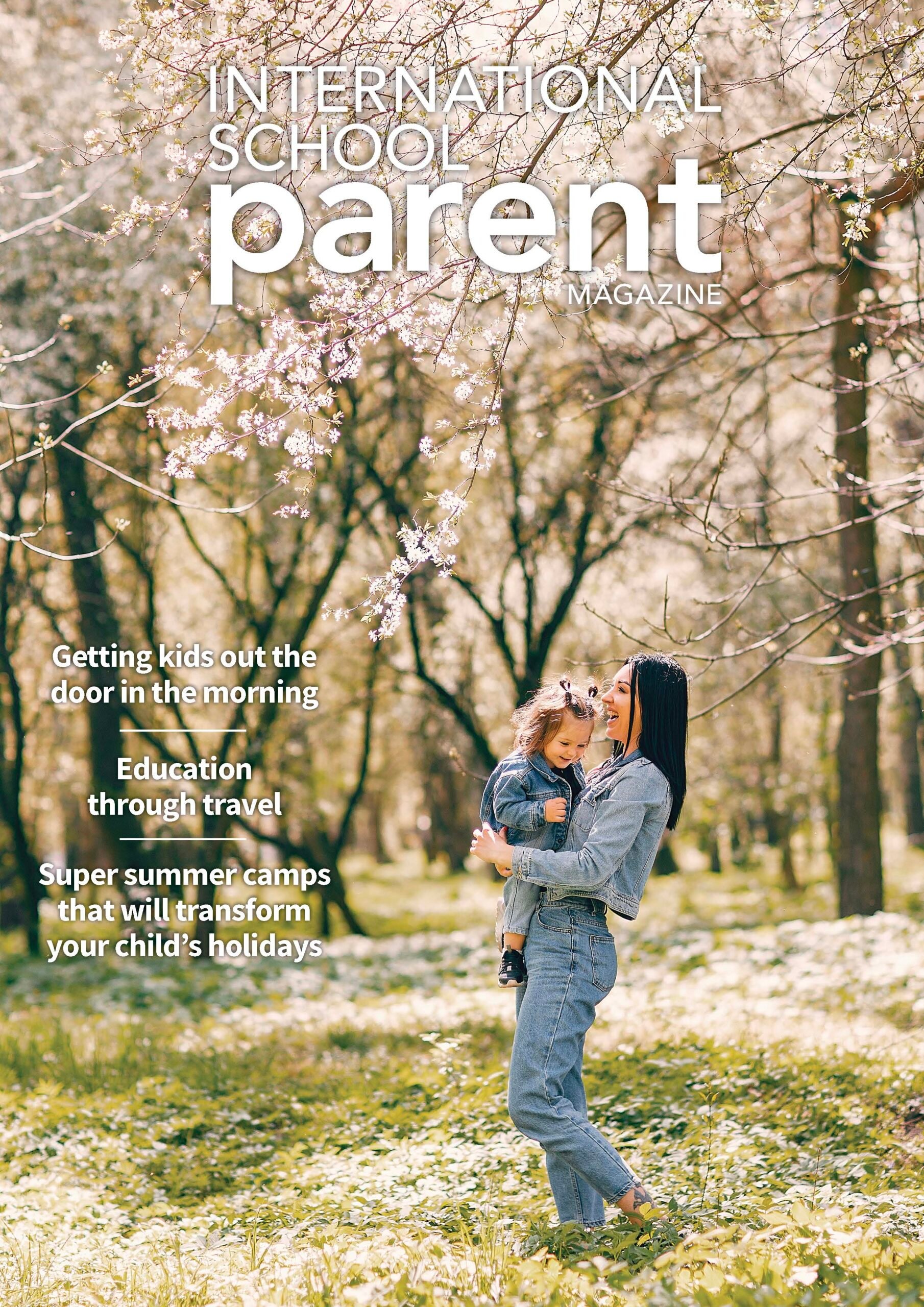Meet the Senior Leadership Team – Inter-Community School Zurich
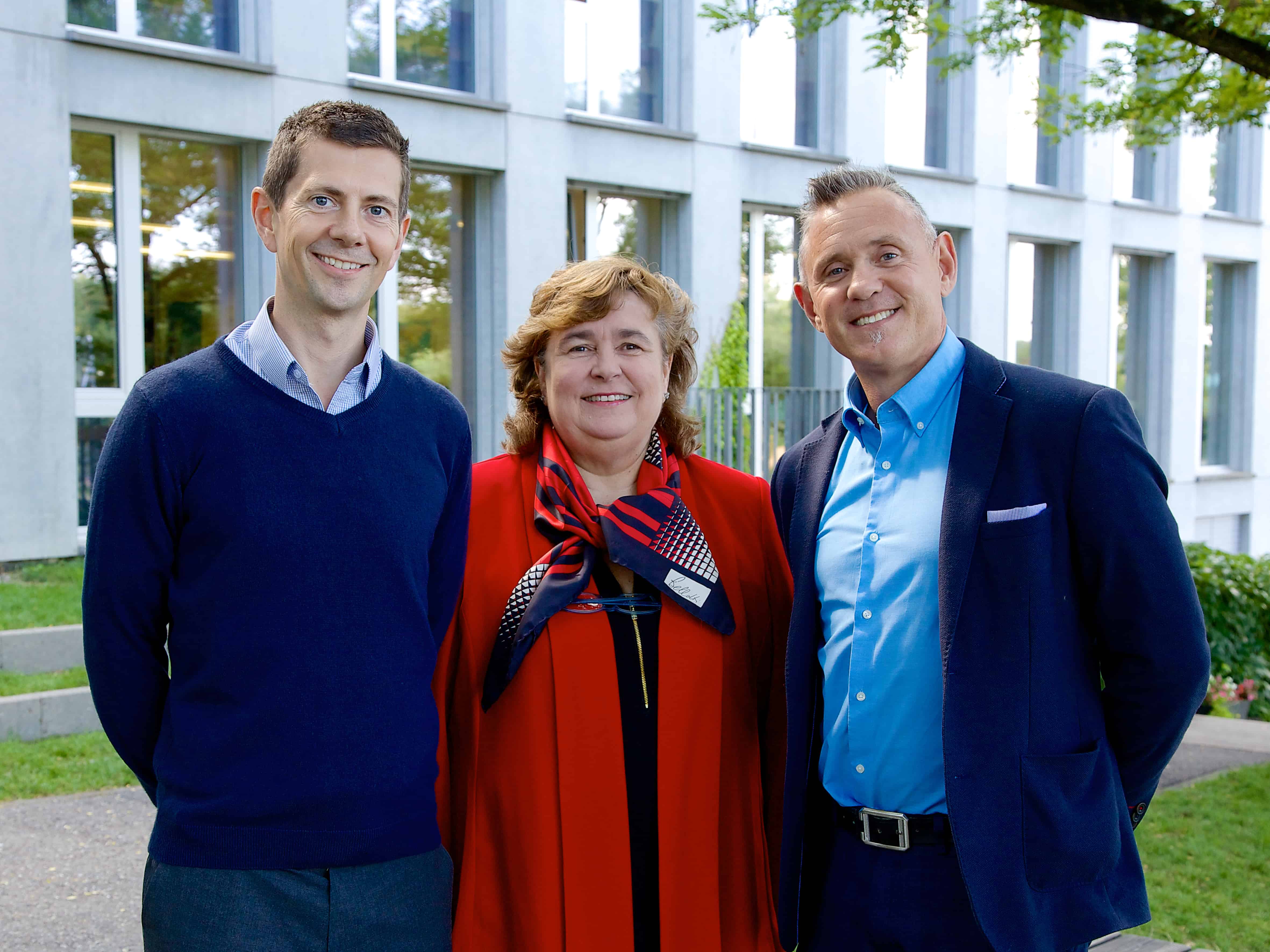
The Inter-Community School Zurich (ICS) is a fully accredited and renowned international school in Zurich, Switzerland and the only school in Zurich offering the International Baccalaureate (IB) Programme including the Primary Years Programme (PYP) the Middle Years Programme (MYP) and the Diploma Studies Programme (DP).
At ICS, there is an emphasis on student centred learning, community, and a unique approach to the management of the school’s operations with a distributed leadership structure at the academic and administrative levels. This approach emphasises dispersed decision making rather than the typical hierarchical structure found in most international schools. Student learning is at the heart of decision making which is rooted firmly in the belief that each member of the community is a leader and empowered to participate with the best interests of the learner as the guiding force.
We spoke with Head of School Mary-Lyn Campbell, Secondary Principal James Penstone and Primary Principal Julian Edwards about how this approach combined with the school’s IB plus methodology prepares students to excel not only in the rigorous IB examinations but also to flourish in today’s rapidly changing world.
How is community central to the mission of ICS?
Our mission is to support students to realise their potential, follow their passions and fulfil their responsibilities. We aim to cultivate different cultures within the school: a culture of community care, of responsibility and community engagement, and high expectations and learning. Within those cultures, we also have our identities, our school identity and our ethical identity. Everything we do at ICS grows from the individual and their relationship to the mission to the culture and their sense of identity.
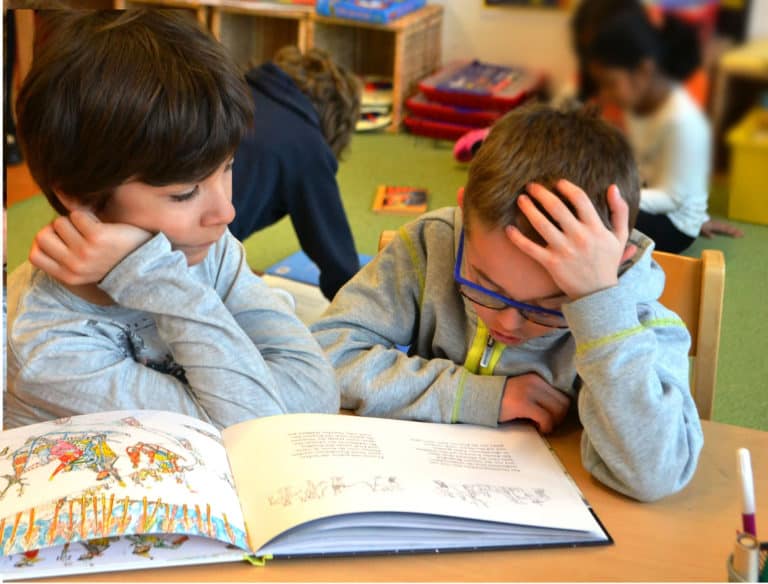
We want all our students to feel part of an inclusive community based on respect. We try to engender a sense of self-worth within each child so that they feel able to express their views and understand that their participation in discussions about the future of their learning and the future of the school is valued.
How is learning student-centred?
We focus on the student and their ability to access the curriculum and encourage our learners to develop an understanding of themselves and their preferred way of learning. As today’s educators, we know that we must prepare students for a world of unknowns. They must be curious, innovative and resilient problem solvers willing and ready to collaborate with others. Building an understanding of yourself, seizing opportunities to develop your strengths, and finding support where you need it is essential. Armed with self-knowledge, having had the chance to experience first-hand challenging situations and acting on advice received from experts allows ICS students to develop a personalised toolkit of learning strategies. This is invaluable as it is the basis for lifelong learning and will follow them throughout their higher education studies and into their future workplaces. Our curriculum has the breadth to allow learners to engage with and develop interests that are both academic and relevant to life.
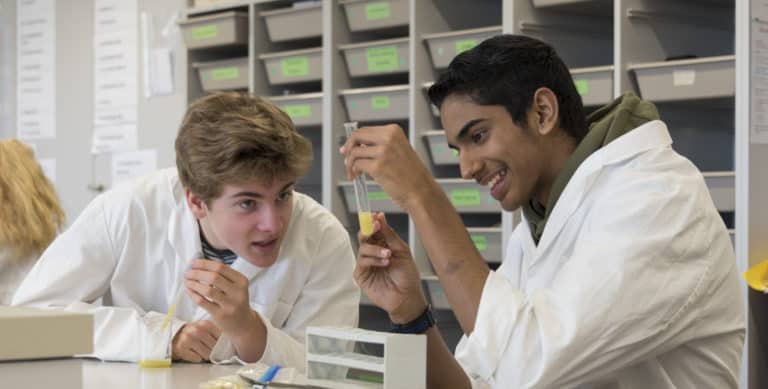
By focusing on the student’s interests, we offer opportunities to broaden disciplines to the benefit of the individual’s learning experience. For example, if a Grade 10 student is passionate about sustainable architectural practices, we will try to provide opportunities such as an internship or a community project to enable the student to explore the field further. We personalise learning at the Primary school level to tailor learning to students’ individual needs. The role our highly trained IB teachers play in this process is critical.
We share knowledge about individual students and their needs through our well-developed and unique pastoral approach, especially evident when a student progresses from Primary to Secondary school. A highly developed transition programme involving our team of learning specialists and counsellors facilitates and supports families as well as students to ensure success. Also, children are always encouraged to advocate for themselves as learners at whatever stage they are in their schooling as they inquire, discover and collaborate with others to further their knowledge.
We consider that individual students are part of an ecosystem, rather than a hierarchy. There are several people involved in a child’s educational journey at ICS, and each has a robust invested interest in their development. We ensure that all elements of a student’s life are overlapping with the student at the centre of the web. Each person immersed in the student’s education has ample opportunity
to assume the leadership role as needed. And, the child also leads the learning by being permitted to investigate thoroughly the areas
of the proposed curriculum that are of great interest. Even our youngest students enrolled in the Early Years Programme are supported to use a project management approach to their investigations. You regularly incorporate the concept of leadership into the students’ learning.

Can you define leadership and how you develop this?
Leadership is having a positive influence on other people to support each other and can take many forms. Most importantly, it’s about exercising your responsibility to make positive contributions to the community. At ICS, the principles and foundations of leadership are developed in Primary school and grow to a point where leadership comes from the students in the Middle and Diploma Programmes.
For example, we recently had an assembly in the Primary school on how to build a classroom community. This led to conversations around the differences and strengths of individuals, and how these can translate into success for the class as a whole. In this instance, children were learning, at a very young age, about the importance of teamwork and being encouraged to develop their ability to
collaborate, discuss and evaluate with others.
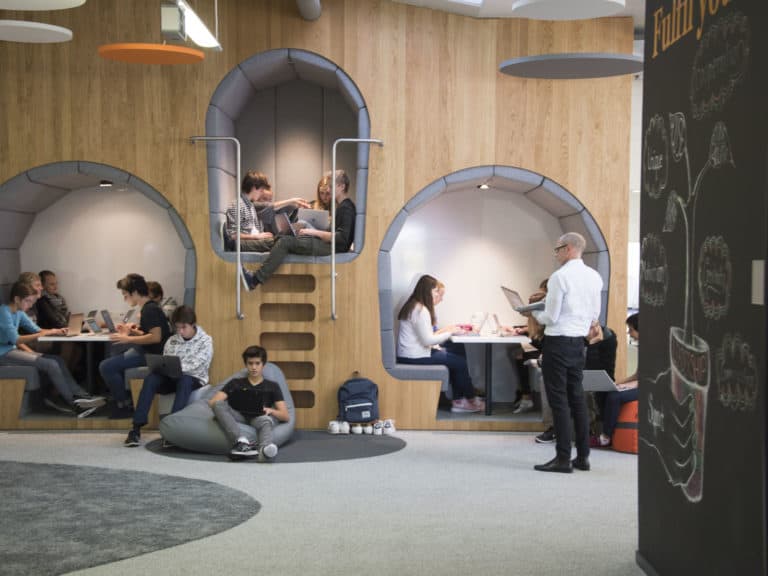
Many employers have indicated that this ability to investigate and collaborate is a missing trait for many young people. At the Secondary level, we phased out the traditional hierarchy of a student body council, to engender a sense of shared responsibility based on individual strengths. We’re using a flat horizontal structure whereby all parties in the community have a voice and not just a few elected representatives. It’s more challenging to manage, but it empowers young people to take responsibility and to lead the change they want to be wholly.
Why is this interpretation of leadership so crucial in the 21st century?
While we recognise that it is vital to experience hierarchical forms of leadership, today’s world requires individuals to know how to collaborate and contribute based on their strengths. Again, according to the World Economic Forum, the skill sets that students need for the future are based on successful collaboration rather than individual, charismatic leadership. A modern society should concentrate on leadership beyond the ego. No single individual can lead successfully in today’s world because the contributions of others are vital to the success of most projects. We believe that in this way, no matter who you are, everyone can be a leader.
How do you encourage understanding between cultures and nationalities?
Our student body represents around 50 different nationalities. An appreciation of diversity is at the heart of supporting students and developing relationships. And not only cultural diversity: there is diversity in values, in socio-economic standing, in opportunities and gender. Our programme provides us with plenty of opportunities to discuss and gain a respectful understanding of those differences. It’s important to acknowledge children’s natural curiosity and allow students to take the lead when grappling to understand differences. At ICS, we are open and responsive to differences and diversity.

We also believe that it’s essential to celebrate similarities, so we don’t create a sense that there are irreconcilable differences amongst the student body. There’s a considerable amount of overlapping experience in culture, and that’s important to recognise as part of a broader discussion of intercultural sensitivity. We, therefore, build respect. Respect for what we have in common and respect for our differences.
What are the main challenges you see for education in the future, and how are you addressing them here at Inter-Community School?
It’s an incredibly exciting time to be in education and having this conversation with students and teachers as we head into the future.
Questions are circling what authentic learning looks like in the digital. We’re indeed preparing ourselves to meet the challenges that this presents because the role of schools is going to change. We need to keep informed, and we have been networking with organisations that are at the forefront of these changes, as well as talking about the role of education with leading authorities on a global level.
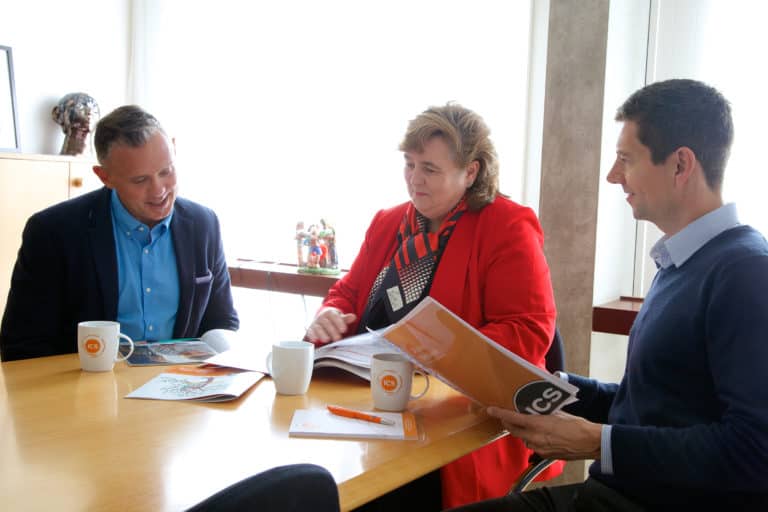
To be agile, it’s essential to have a leadership structure that is founded on a whole network of educators who are thinking along the same lines about the same things. We are committed to research and to developing further our understanding of what’s happening in school communities worldwide to inform our strategy for the future. Our core understanding is that we will have to continually adapt what we do, so we invite the participation of stakeholders, including students, to help us to shape that future. Schools will need to be open to exploring non-traditional approaches to the curriculum; something we already do. All in all, when you’re prepared and willing to adapt, it’s no longer a challenge, but an exciting opportunity.
For more information on ICS visit www.icsz.ch
